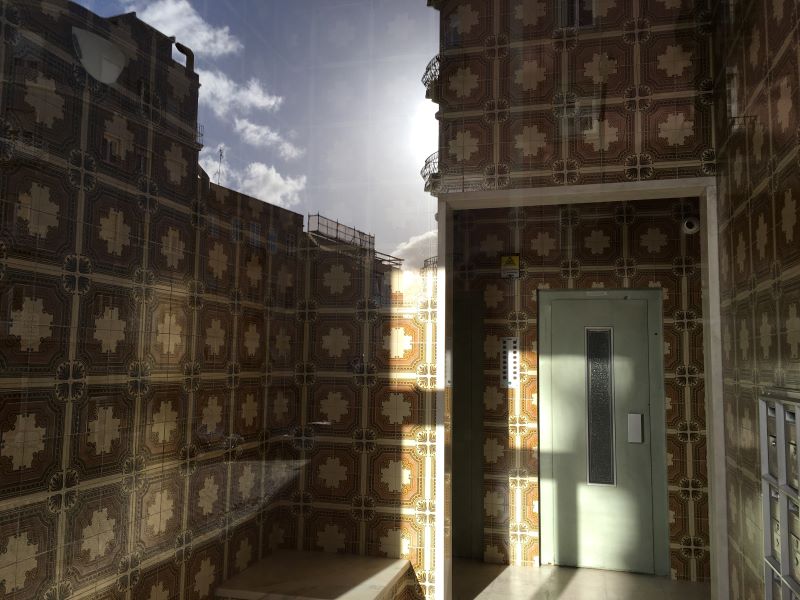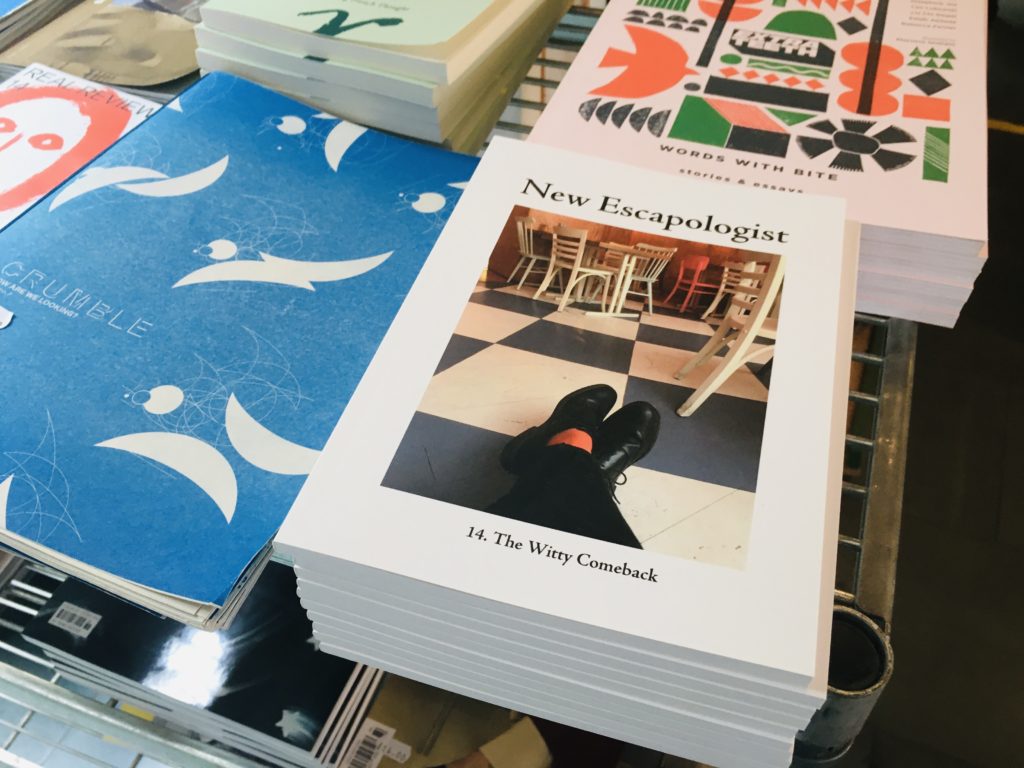Frank Hank

Thanks to Reader S for sharing this. It’s a letter from Charles Bukowski to the man who freed him from his day job.
Publisher John Martin agreed to pay Bukowski a monthly stipend if only he’d agree to quit his time-wasting job as a mail clerk. In the letter, Bukowski shows his gratitude and follows it with an almighty complaint about the indignity of employment:
They never pay the slaves enough so they can get free, just enough so they can stay alive and come back to work.
Say what you like about Bukowski, but he was great at blowing the whistle. I think that’s one of the things people like about him. He wasn’t afraid to cry “bullshit!”
In Post Office he calls out the world of work. In its prequel, Factotum, he does the same for the world of art, expressing his frustrations with publishers, of not being allowed in for so long as a working-class man.
See how he describes his onetime fellow rat racers, with scorn but not without sympathy:
what hurts is the steadily diminishing humanity of those fighting to hold jobs they don’t want but fear the alternative worse. People simply empty out. They are bodies with fearful and obedient minds. The color leaves the eye. The voice becomes ugly. And the body. The hair. The fingernails. The shoes. Everything does.
As a young man I could not believe that people could give their lives over to those conditions. As an old man, I still can’t believe it. What do they do it for? Sex? TV? An automobile on monthly payments? Or children? Children who are just going to do the same things that they did?
Beautiful, furious stuff. The whole letter is worth a read.
*
The White Pearl
These Tiny Home videos are ten a penny on YouTube now, but they’re united by the same drives to independence. “Tinies” are cheap compared to some conventional housing and to build one can be a worthwhile labour of love.
This particular example isn’t a self-build but a converted van. The occupant is a wood turner and he’s done a lovely job of it.
What captures my imagination more than anything though, is its self-containedness. The guy has everything he needs (his craft, his independence, his transport, his mental health, his security and comfort) in one little, mobile capsule. It’s delightful.
It’s rare for me to be charmed by a vehicle-based home (other than boats of course) but this one’s fab.
An Escapologist’s Diary: Part 77. Escritores de Lisboa

Last week saw a short trip to Lisbon. What an anarchic city. People talk about the ceramic tiles on the fronts of buildings but nobody mentions how it’s all up-and-down and higgledy-piggledy. The cube-shaped cobble stones fan out from their groundings like madmen’s teeth. Near the place we were staying, some graffiti read “Alfama, don’t break your ankles.”
At another spot, the graffiti said “clean is boring.” The city isn’t particularly unclean though: this being continental Europe, the streets are cleaned often enough and the people are evidently proud or smart enough not to drop much litter in the first place. There’s a lot of messy graffiti though, mostly unimaginative tags at shoulder-height. They’ll get that fixed one day: it’ll be the big cosmetic change that makes the city super-liveable like the sandblasting of the tenements in Glasgow in 1990.
I’m not down on the anarchism of Lisbon. I like it. The energy, the hustle and bustle, is great. It feels a bit like being in Asia in some ways. Africa feels tantalisingly close. My walking boots were up to the challenge of not breaking my ankles. I like how the old-fashioned wooden trams rattle around the hilly streets. You’ll be in a café somewhere when the light changes suddenly as the tram blasts by the window.
Going Bankrupt
I just read Jess Walters’ novel, The Financial Lives of the Poets.
It’s a bit like Breaking Bad, though I don’t think anyone copied. The author must be pretty tired of hearing the comparison too, especially as his real name is a combination of Breaking Bad’s main characters.
In this version of the story, the respectable family man who becomes a drug dealer is not motivated by cancer but by debt.
The plan to sell drugs (pot in this case, not meth) to his respectable middle-aged friends comes to nothing in the end and he just ends up filing for bankruptcy.
The final scenes involve sending his two kids to the cinema without him (because he can only afford two tickets) and splitting a single ice-cream cone with his wife. This newfound hardship is portrayed as relatively noble, the detox our guy needs if he’s to turn over a new leaf.
As it’s portrayed, the simple life of the bankrupted maker of bad decisions is remarkably similar to my own. He lives in a one-bedroom apartment. He doesn’t have money to squander on cinema tickets. Etc.
I chose this life so I can get on with poorly-recompensed cultural production. It’s more important to me to be a writer than to live materially well. It’s the old starving artist model. I never feel like I’m starving though and our small apartment is enough. I’m not complaining.
But unlike me, the guy in this novel enjoyed a decades-long joyride through material wealth and debt generation before coming to accept less. I didn’t have the fun of that! What’s more, the consequences of his joyride were minimal. Bankruptcy didn’t lead to homelessness. He just had to liquidate and downsize. So what?
He says he has “bad credit” now and must claw back his reputation as a borrower through frugality and hard work, but in my experience “bad credit” doesn’t matter a great deal. We didn’t have good credit when shopping for our first non-rented home because, averse to borrowing, we’d never generated debt or therefore paid any off. I’d been warned about this in advance by well-meaning friends, but it turned out not to matter at all: we bought the flat we wanted. Nobody gave a hoot about our credit, “good” or otherwise. Credit turned out to be something of a bogeyman.
I sometimes wonder if my aversion to debt is too extreme. Maybe I should max out a bunch of credit cards and be happy. I could skip the acquisition-and-liquidation of a McMansion part of the story and spend the bank’s money on good food and travel instead, non-material experiences they won’t be able to reclaim to punish me. Maybe that’s what we should all do.
I sense that this is a bad idea. But after reading that novel I’m not entirely sure why.
*
Go!

Issues 14 and 15 are now both SOLD OUT in our online shop.
Sorry. I’ll order more copies next time.
But don’t despair. Try the digital editions (14, 15) and you can join our mailing list for news of future issues.
There’s also still physical stock in the world at these locations. Now please recreate It’s a Mad Mad Mad Mad World to ensure that you get one of the last few copies. Go!
It’s This
You know when you stumble upon writers or bloggers who just seem to get the same issue that you’re turning over in your mind? And you read and then some of their suggestions make you go “Yes!” It’s this.
Whoa, this is a really lovely review of New Escapologist from blogger Alasdair Johnston. Thanks Alasdair!
The guy has a spare copy of Issue 15 to give away too. Read his post for instructions on how to get it. (This is extra valuable now that the magazine has almost sold out).
With Wings and Hands and Leaves
Thanks to Reader A for drawing our attention to Mandy Brown’s United Theory of Fucks.
Don’t give a fuck about your work. Give all your fucks to the living. Give a fuck about the people you work with, and the people who receive your work—the people who use the tools and products and systems or, more often than not, are used by them. Give a fuck about the land and the sea, all the living things that are used or used up by the work, that are abandoned or displaced by it, or—if we’re lucky, if we’re persistent and brave and willing—are cared for through the work. Give a fuck about yourself, about your own wild and tender spirit, about your peace and especially about your art. Give every last fuck you have to living things with beating hearts and breathing lungs and open eyes, with chloroplasts and mycelia and water-seeking roots, with wings and hands and leaves. Give like every fuck might be your last.
Nice.
*
If you give a fuck about life on Earth and zero fucks about grifting for the man, New Escapologist is the magazine for you. Respond to our beacon, hear our song.
The Good Life for Wage Slaves is also back in print. It’s a shoulder to cry on for those still trapped like a wasp beneath an upturned pint glass.
A Little Freaked Out

According to his excellently-titled memoir Every Man For Himself and God Against All, Warner Herzog’s brother is of a different temperament to our rogue filmmaker.
At the age of nineteen, he was a little freaked out because he could see his business career so clearly mapped out ahead of him all the way to eventual retirement.
He was no stuffed shirt though. To have such insight is impressive and he even planned to act on it:
So he decided to quit and see the world instead. He had a VW Beetle and planned to drive to Turkey.
Werner’s advice to his brother?
I urged him to be more ambitious and range farther afield.
*
Work vs. Work
I was trying to “work” today. My work is writing, though it is not particularly arduous writing.
Downstairs, my neighbour was playing his guitar and it was breaking my concentration. I’ve asked him before not to amplify his instrument at home (surely he could play acoustic only?) but he claims to not even be at home during the day.
The confrontation at least had the effect of him no longer playing at night, and I’m prepared to accept his lie about daytime hours: he’s a grown man who doesn’t enjoy being ticked off on his own doorstep, and he deserves to protect his dignity.
It occurs to me that it might not be right for me to complain at all though. I have, after all, turned my home into a place of work, which it was never intended to be. If I want silence perhaps I should rent a hot-desking booth in an office somewhere. Obviously I don’t want to do that because it would incur a cost and I hate going to work, but my request that this neighbour knock it off might not be morally upheld. He should be able to play guitar at home if he wants to.
Maybe work shouldn’t be done at home at all.
Then again, my neighbour seems to be practicing for something. He probably sees his guitar practice as work too. So we have a situation of “work vs. work.”
When did creativity become work?
When did work invade the home?
I know the answers to these questions because for 16 years I’ve been advocating for creativity as a way to escape drudgery and also for the sensible benefits of WFH as a way to escape the commute and the office environment.
Why do I feel like I’ve shot myself in the foot?
*
Issue 14 is sold out and is now only available in digital formats. There aren’t many copies of Issue 15 left either, so here’s where to go if you’d like a copy in print or indeed digital.
NE in DC
American readers! If you happen to be near Washington DC anytime soon, you should visit the mighty Politics & Prose Bookstore.
You should go anyway, but an additional reason is that they now stock New Escapologist.
You can see our happy little mag in this photograph. We’re snuggled in the shelving system with Sight & Sound, Apartamento and our friend Jonathan’s Analog Sea Review. The divider tag describes us as “Niche, Cheeky, Defiant,” which is true.

As it happens, this is nothing to do with the new distribution arrangement that will see New Escapologist in thirty or so shops across the UK, EU and US (news of which is coming soon).
In this case, bookseller Shane got in touch independently to request copies for sale. He was not deterred by the now-parodic cost of shipping to the US from Scotland and the order was placed. What a hero.
Honestly, little pleases me more than evidence of émigré copies of New Escapologist. Thanks for the pic, Shane, and for stocking our mag.
*
In the unlikely event that you’re not in Washington DC, you can still order Issue 15 in our online shop.
And if you happen to be a bookseller yourself, please see this page about how to stock New Escapologist.



